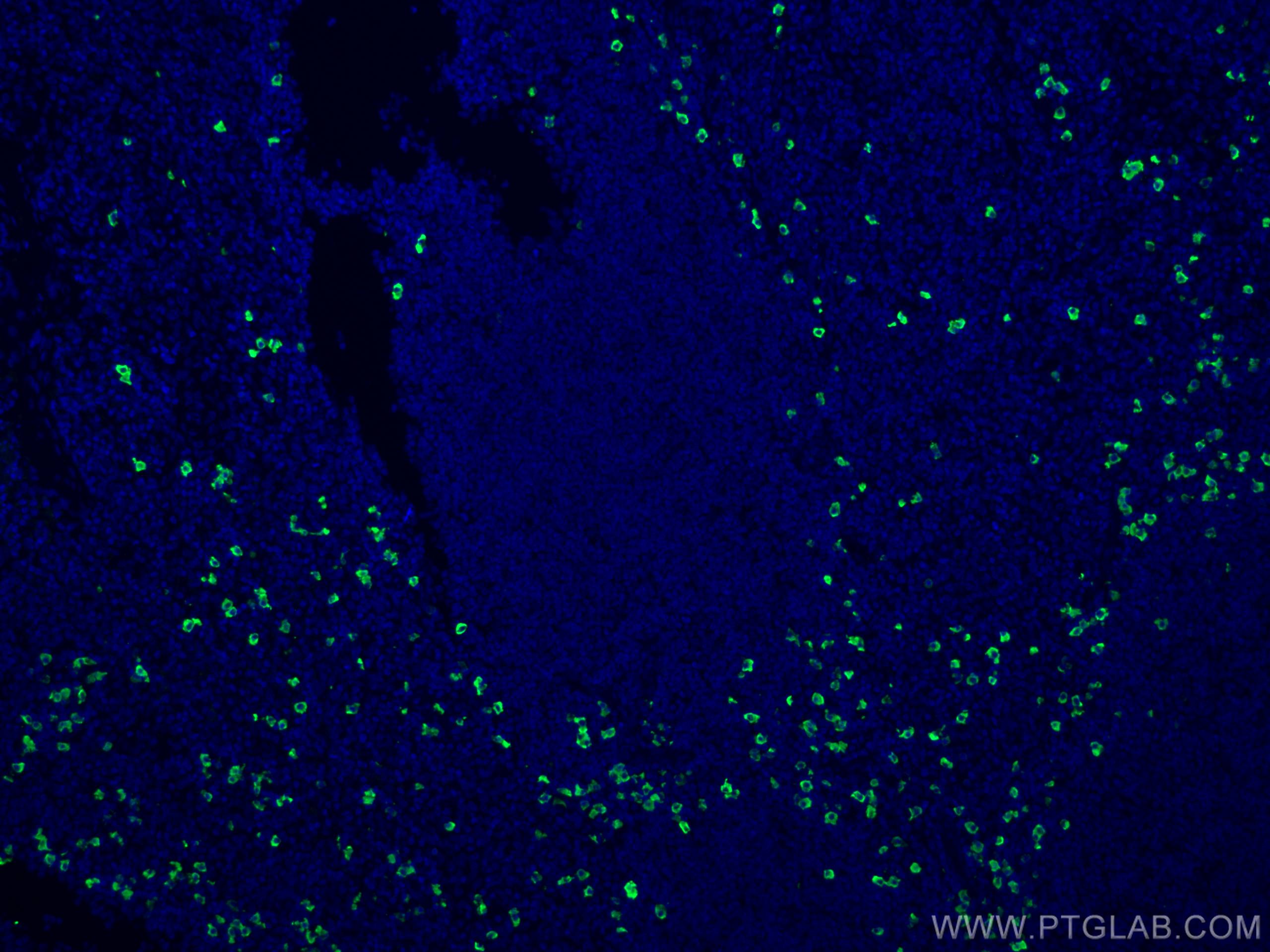Human IgA Heavy Chain Polyklonaler Antikörper
Human IgA Heavy Chain Polyklonal Antikörper für IF
Wirt / Isotyp
Kaninchen / IgG
Getestete Reaktivität
human
Anwendung
IF
Konjugation
CoraLite® Plus 488 Fluorescent Dye
Kat-Nr. : CL488-11449
Synonyme
Galerie der Validierungsdaten
Geprüfte Anwendungen
| Erfolgreiche Detektion in IF | humanes Tonsillitisgewebe |
Empfohlene Verdünnung
| Anwendung | Verdünnung |
|---|---|
| Immunfluoreszenz (IF) | IF : 1:50-1:500 |
| It is recommended that this reagent should be titrated in each testing system to obtain optimal results. | |
| Sample-dependent, check data in validation data gallery | |
Produktinformation
CL488-11449 bindet in IF Human IgA Heavy Chain und zeigt Reaktivität mit human
| Getestete Reaktivität | human |
| Wirt / Isotyp | Kaninchen / IgG |
| Klonalität | Polyklonal |
| Typ | Antikörper |
| Immunogen | Human IgA Heavy Chain fusion protein Ag2007 |
| Vollständiger Name | immunoglobulin heavy constant alpha 1 |
| Berechnetes Molekulargewicht | 496 aa, 53 kDa |
| Beobachtetes Molekulargewicht | 53 kDa |
| GenBank-Zugangsnummer | BC016369 |
| Gene symbol | IGHA1 |
| Gene ID (NCBI) | 3493 |
| Konjugation | CoraLite® Plus 488 Fluorescent Dye |
| Excitation/Emission maxima wavelengths | 493 nm / 522 nm |
| Form | Liquid |
| Reinigungsmethode | Antigen-Affinitätsreinigung |
| Lagerungspuffer | BS mit 50% Glyzerin, 0,05% Proclin300, 0,5% BSA, pH 7,3. |
| Lagerungsbedingungen | Bei -20°C lagern. Vor Licht schützen. Aliquotieren ist bei -20oC Lagerung nicht notwendig. 20ul Größen enthalten 0,1% BSA. |
Hintergrundinformationen
Ig alpha is the major immunoglobulin class in body secretions. It may serve both to defend against local infection and to prevent access of foreign antigens to the general immunologic system. This antibody recognizes the Chain C region of human Ig alpha-1 (IGHA1).
Protokolle
| Produktspezifische Protokolle | |
|---|---|
| IF protocol for CL Plus 488 Human IgA Heavy Chain antibody CL488-11449 | Protokoll herunterladen |
| Standard-Protokolle | |
|---|---|
| Klicken Sie hier, um unsere Standardprotokolle anzuzeigen |


